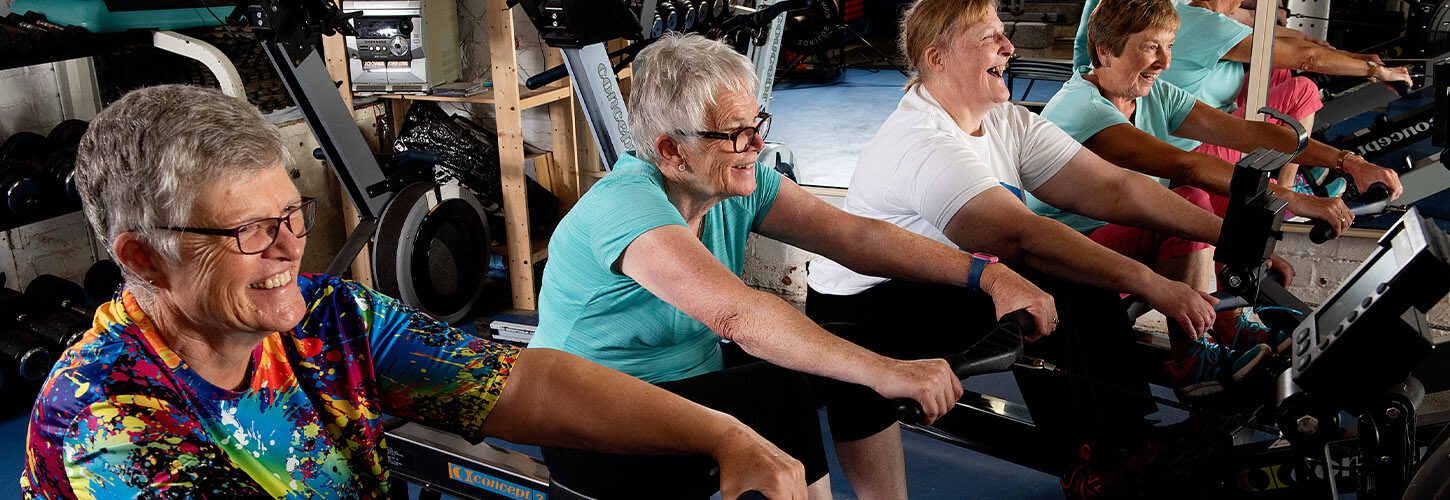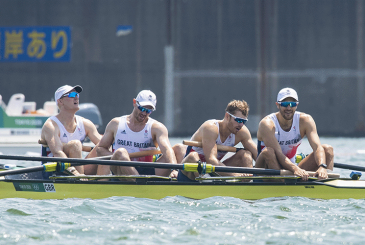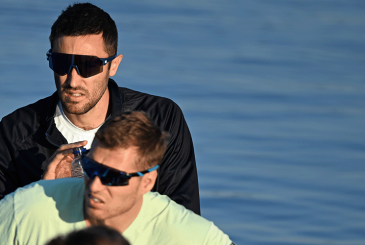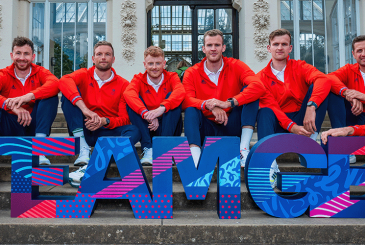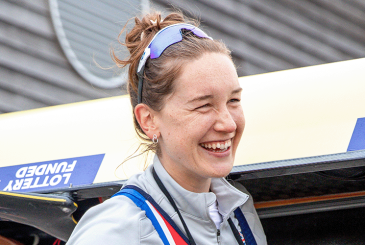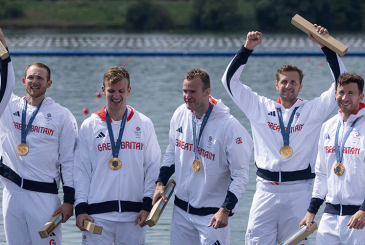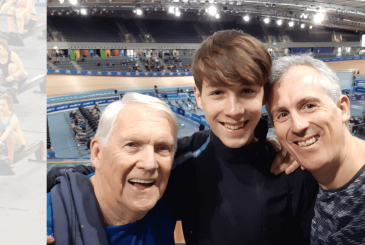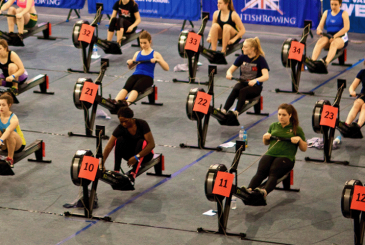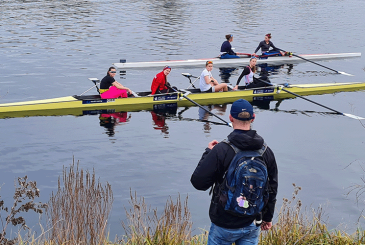So far in this series of articles we’ve focused on you as an individual rower, specifically the mental techniques that can help you optimise your performance. Now Dan Abrahams directs your focus towards you as a teammate
Rowing, like so many other sports, gives you the opportunity to team. That might be in a boat, or it might be on a rowing machine side-by-side striving to help each other achieve your very best times. Either way, there are numerous benefits to be had from learning how to row together, and from learning how to inspire and energise each other. When team mates urge you on, you can get fitter quicker. You can self-regulate faster. And you can push through barriers that may have once seemed unlikely or even impossible.
Energy lies at the heart of team-ship – a feeling of vigour and vitality that emerges from the group. And whilst this may be underpinned by the motivational language used by each individual, energy is often built from more nuanced foundations.
To explore the subtleties of team energy, let me introduce you to three ways that help to develop the energy of your team.
Share your objectives
It’s tough for a team mate to motivate you if they don’t know what you’re trying to achieve. So tell them! This may sound somewhat obvious, but by making sure there’s a shared understanding around ambitions and outcomes, you improve the ability of teammates to drive the energy of the group.
If you’re part of a team of indoor rowers, then let your team mates know what your objective is. Is it a certain time you’re trying to record? Or is it a number of strokes per minute or a distance you’re trying to accomplish? By telling your team mates you give them an understanding of what’s driving you, and subsequently they can remind you of your goals and help you to push through the barriers you face.
By sharing your objectives you can also take advantage of the dynamic between competition and co-operation. When you compete against team mates you’ll likely row harder and faster. To be the best competitor you can be, it’s useful to engage in co-operative processes, such as sharing objectives. Competition drives co-operation, while co-operation drives competition – a neat interplay that helps raise the energy of the group, and helps you get the most from your rowing ability.
Discuss vulnerabilities and share mindset plans
Now you know what you’re each striving to achieve, it’s important to discuss the things that may hold you back. The thoughts, feelings, and emotions that limit your chances of achieving your objectives. This could relate to the anxieties you tend to experience pre-race, or the distractions that often creep into your mind mid-race. It could relate to any doubts, worries or fears you’re currently experiencing.
Share them with your team mates. Let them know the ‘hot-spots’ that slow you down, that damage your rowing stroke, that tighten your muscles, and that distract you from your race strategy. Be honest! By doing so you empower your team mates to notice when you’re mentally not as engaged as you should be.
Aligned with the above, share you mental game plan with your team mates. If they have a knowledge of the tools and techniques you like to use then they can remind you to use them. They can reinforce them during a race, especially during tough moments. Develop a shared mental model of each other’s mental processes.
Aim to energise
As a sport psychologist who is blessed with the opportunity to work with leading athletes, I’m aware that the idea of ‘positive thinking’ is nuanced at the elite level of sport. Champions are champions perhaps more because of their ability to monitor the granular detail of their performances and to be critical of themselves, more so than being positive all the time.
It’s the immersion in detail and the awareness of what needs to go better that tends to drive their learning, and enjoy the kind of marginal gains that helps them win championships and gold medals. However, champions in sport do understand that group work requires a high level of positivity in order to retain the energy in the group.
Positivity delivers energy through social and emotional contagion – the tendency to automatically mimic and synchronize expressions, vocalizations, postures, and movements with those of another person, leading to an emotional convergence. When one member of the group displays positive energy, it can help other members to experience a positive feeling. In the last article, we explored the importance of positive and energising self-talk. It can be useful to vocalise the self-talk you aim to use to push yourself on, so you can motivate and inspire others.
Finally…
Aim to create a positive and energising narrative around your team. You can do this through a process called stereotyping.
Research evidence over a number of years has discovered the power of stereotyping. It has been shown that, to some extent, the roots of poor performance lie in preconceptions. For example, women who have been led to believe that they generally do worse than men at mathematics, will perform less well in a maths test as a result. On the flip side researchers have shown that stereotypes can act positively to boost performance. For example, research has shown that Asian women do better on maths tests if they identify themselves as Asian rather than as women.
Stereotype your team by creating a positive and energising mantra related to your approach as a group of rowers: “What do we do when we row? We compete together. We support and drive each other on no matter what. We accept each other’s vulnerabilities, and we support each other with positive and energising vocals. We drive each other on no matter the challenge”
In summary, be a great team mate by energising others, and by giving others the opportunity to energise you. By being a strong, energising, and positive team mate, you can also be a great individual as well
Head to the ROWBOTS website for more information and to sign up to one of their classes.
–
–
–
–
–
–
–


